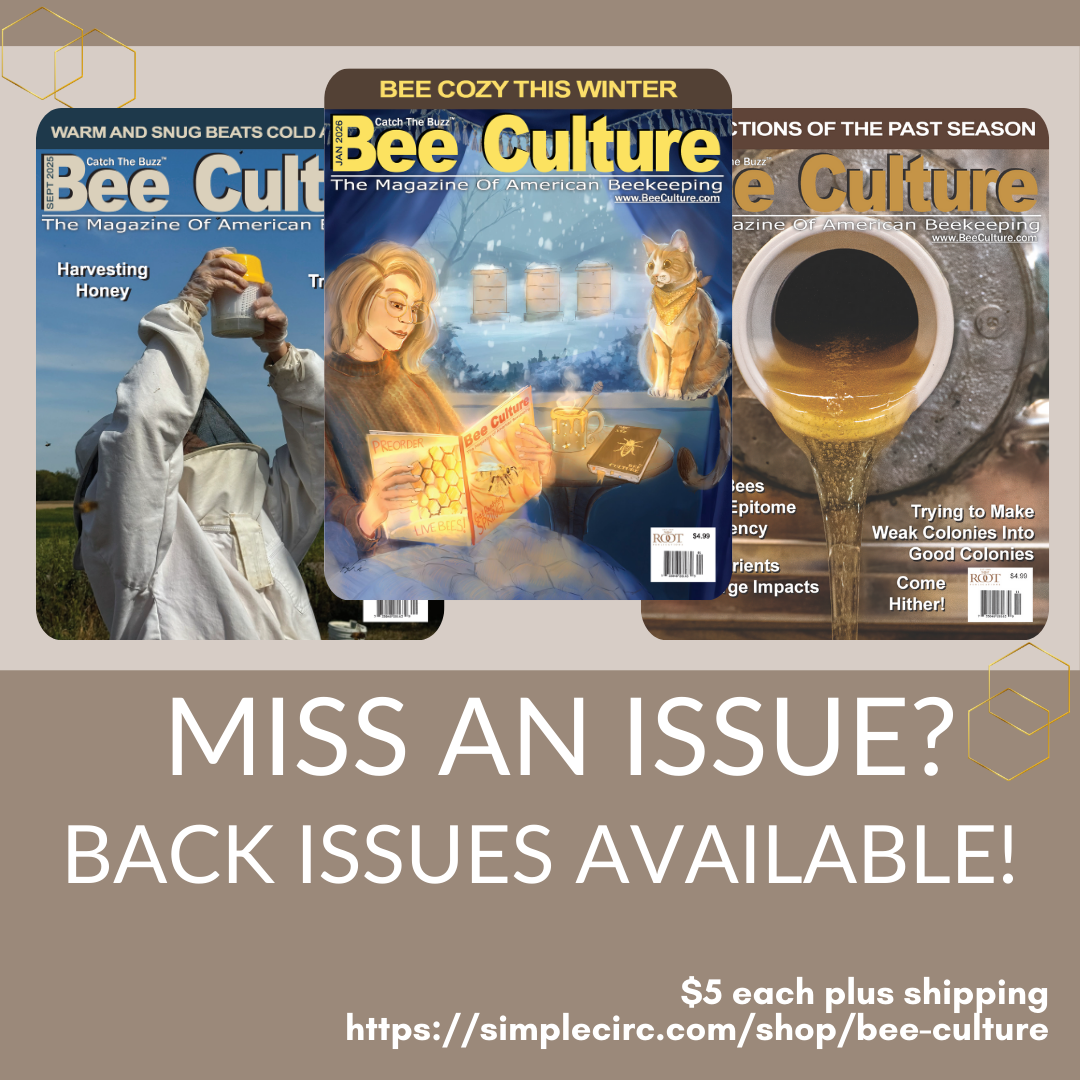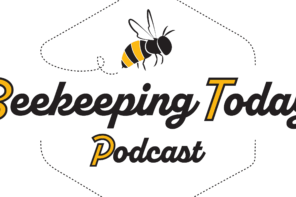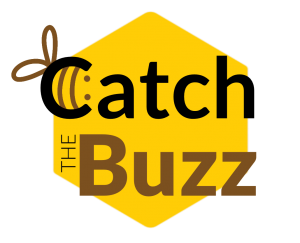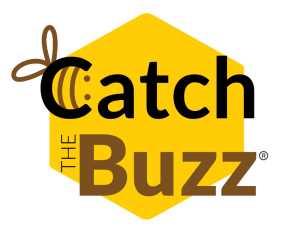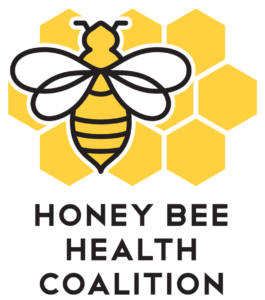 Brooke Rollins
Brooke Rollins
Secretary of Agriculture
U.S. Department of Agriculture
Ricki Schroeder
Chief of Staff for Research, Education, and Economics
U.S. Department of Agriculture
Michael Arnold
Director of Budget and Program Management Staff
U.S. Department of Agriculture – Agriculture Research Service
May 1, 2025
Dear Secretary Rollins, Chief of Staff Schroeder, and Director Arnold,
As you may know, managed honey bee colonies are indispensable to the success, sustainability, and long-term viability of agriculture across the United States. In addition to honey production, honey bees play a critical role in pollinating over 90 crops essential for food production and security.
In 2025, the beekeeping community faces an unprecedented crisis, with estimated losses reaching 1.6 million colonies over the past year—accounting for approximately 60% of all managed honey bee colonies in the United States. At a time when agriculture is facing multiple challenges, it is vital that we continue to support research efforts that can help identify underlying causes and reverse the damage done to our honey bee populations.
Recognizing the critical role that these scientists and their research play in sustaining U.S. agriculture, we urge you to maintain the funding and operational capacity of the USDA Agricultural Research Service (USDA-ARS) honey bee research units nationally. We also request that USDA-ARS scientists be authorized to communicate the results of their recent analysis of the causes of the 2025 catastrophic losses. Our beekeepers, farmers, and communities depend on it.
The outright loss of 60% of the total managed honey bee colonies in the U.S. is staggering. These losses are already having severe repercussions on honey production and the pollination services that honey bees provide to a wide range of agricultural industries. The full impact of honey bee shortages on pollinated crops (including almonds, apples, cherries, blueberries, melons, and pumpkins, among many others) remains to be seen. As growers struggle to secure contracted pollination services for their crops, this could reduce farmer yields, create higher prices and limited availability in the grocery store, and potentially have other impacts on these cropping industries valued at more than $18 billion annually. The estimated economic losses from the recent colony losses already exceed $600 million, and many beekeepers are struggling to recover financially from these extraordinary losses. At the current rate of loss, this crisis may lead to inability to meet future crop pollination service demands as the growing season across the country progresses, threatening domestic production of food including fresh fruits and vegetables.
The Honey Bee Health Coalition consists of a wide range of stakeholders including beekeepers, growers, researchers, government agencies, agribusinesses, conservation groups, manufacturers, and consumer brands focused on improving the health of honey bees. The Coalition and our partners are writing to express concern over recent discussions regarding the USDA’s plans to reduce its workforce, specifically in the Agricultural Research Service (ARS) units responsible for honey bee health and pollination research: https://www.govexec.com/management/2025/04/some-usda-rif-plans-take-shape-department-warns-employees-major-cuts/404247/
The ARS is the USDA’s chief scientific in-house research agency. Daily, ARS focuses on solutions to agricultural problems affecting America. Each dollar invested in agricultural research results in $20 of economic impact. USDA-ARS researchers have been pivotal in providing immediate and effective support to beekeepers during this crisis and past crises. From collecting initial samples and analyzing results to identifying the causes of colony losses and developing mitigation strategies, these scientists are a trusted lifeline to the beekeeping industry. The USDA-ARS honey bee researchers are ensuring that the beekeeping industry and a significant segment of agricultural production which depends on that industry are equipped with the best knowledge to address these challenges.
The Honey Bee Health Coalition and signatories to this letter strongly urge you to recognize the critical role that USDA-ARS honey bee research units play in food security by ensuring continued funding and research positions dedicated to honey bee health within USDA-ARS. These units provide vital expertise in honey bee biology, nutrition, toxicology, and pest management that is essential to solving the current crisis and ensuring domestic food security. If these units are downsized or eliminated, the consequences for U.S. agriculture could be severe, affecting everything from honey production to the pollination of critical food crops and increasing dependence on imports. Given the profound importance of honey bees to U.S. agriculture and food security, it is essential that the USDA continue to fund and support the vital work conducted by USDA-ARS scientists.
Please do not hesitate to reach out if you require additional information or would like to discuss this matter further.
Sincerely,
Matt Mulica
Honey Bee Health Coalition
mmulica@keystone.org
Signatories:
Organizations:
Adaptive Bee Breeders Alliance
Alberta Beekeepers Commission
Almond Alliance
American Beekeeping Federation
American Honey Producers Association
Apiary Inspectors of America
BASF
Backyard Apiaries
Bayer Crop Science
Bee Culture Magazine
Betterbee
Bowie Upper Marlboro Beekeepers Association
California State Beekeepers Association
Central Maryland Beekeepers Association
Honey Bee Veterinary Consortium
Levin Family Foundation/Propolis Projects
Overland Apiaries
Project Apis m.
Saint Louis Zoo
Saskatchewan Bee Tech Transfer Program
Syngenta
The Sand Hill Apiary
Veto-pharma
Western Apiculture Society
Individuals:
Esmaeil Amiri, Assistant Research and Extension Professor, Mississippi State University
Jeremiah Bennett, Beekeeper, 1622 Honey, LLC.
Brittney Goodrich, Ph.D., Assistant Professor of Agriculture
Jenn Harper
Ana Heck, Apiculture Extension Educator, Michigan State University Extension
Maureen Jais-Mick, Beekeeper
Grace Kunkel, Agriculture and Natural Resources Extension Agent, Virginia Cooperative Extension
Hongmei Li-Byarlay, Ph.D., Research Associate Professor of Entomology, Central State University
Katie Lee, Ph.D., Researcher and Extension Associate
Margarita Lopez-Uribe, Ph.D., Associate Professor of Entomology, Penn State University
Eric Malcolm, Apicultural Extension Educator and Apiary Manager, University of Maryland
Briana Price, Honey Bees + Pollinators Education and Outreach Coordinator
Juliana Rangel, Ph.D., Associate Professor of Apiculture, Texas A&M University
Judy Wu-Smart, Ph.D., Associate and Extension Professor of Entomology
Martha Yamnitz, Beekeeper, Bee Augustine



